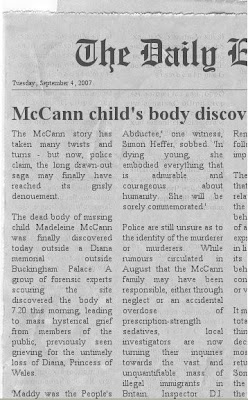“The next real literary ‘rebels’ in this country might well emerge as some weird bunch of anti-rebels, born oglers who dare somehow to back away from ironic watching, who have the childish gall actually to endorse and instantiate single-entendre principles. Who treat of plain old untrendy human troubles and emotions in U.S. life with reverence and conviction. Who eschew self-consciousness and hip fatigue. These anti-rebels would be outdated, of course, before they even started. Dead on the page. Too sincere. Clearly repressed. Backward, quaint, naive, anachronistic. Maybe that’ll be the point. Maybe that’s why they’ll be the next real rebels. Real rebels, as far as I can see, risk disapproval. The old postmodern insurgents risked the gasp and squeal:shock disgust, outrage, censorship, accusations of socialism, anarchism, nihilism. Today’s risks are different. The new rebels might be artists willing to risk the yawn, rolled eyes, the cool smile, the nudged ribs, the parody of gifted ironists, the ‘Oh how banal.’ To risk accusations of sentimentality, melodrama. Of overcredulity. Of softness. Of willingness to be suckered by a world of lurkers and starers who fear gaze and ridicule above imprisonment without law.”
– David Foster Wallace, “E Unibus Pluram” (1993)
I like this quote. I like Cold War Kids for reproducing it in a full-page ad in NME. And yet I'm hesitant to champion its sentiments for a number of reasons.
At first Wallace's essay comes across as completely, almost mind-blowingly, refreshing. Don't you cringe at ironic t-shirts? Isn't sarcasm the dullest form of humour? (I'm reminded of the time that, about an hour after the gig, it finally sunk in for my friend that I really did think Kate Nash's performance at the Dot to Dot Festival was brilliant. A bit like the episode of The Simpsons, 'Homerpalooza': "Oh, here comes that cannonball guy. He's cool." "Are you being sarcastic, dude?" "I don't even know any more.") Aren't you a little worried that you tend to work out life events through examples from TV shows?
Actually these aren't new questions at all, are they? What Wallace taps into is something that a lot of people have been feeling for a long time, probably since transtextual postmodern irony became the native tongue of a new so-called 'Generation X' society some time in the 1980s. And I say transtextual, because Wallace's use of the phrase 'double-entendre' merely implies one extra meaning, when a lot of the time many layers of textual reference are at work. This picture would merely be a Wallacean (Wallacist? whatever) double-entendre if it weren't for the fact that it was also parodying the Roy Liechtenstein cartoons employed in Douglas Coupland's Generation X, which in turn parodied pop art, which in turn parodied comic strips...
Is your head spinning? It should be. But even if what I've written above sounds like garbled nonsense, that is the process you go through every day, reading irony. You recognise and applaud when TV shows are ripping on other TV shows, or even their own show. It's automatic. When we speak, our generation speaks in a thousand voices.
And yet, isn't that pretty much the way it's always been? Is a 'single-entendre' really a purer, less adulterated way of communicating? I don't think so. I'm not as sure anymore, as I once was, that people hide behind irony and postmodern discourse, or that pop culture references are used as a substitute for humour. Not always. Sometimes we yearn, like Wallace (and Cold War Kids), for clarity of expression. But here's the clincher: Cold War Kids quoted Wallace to get their point across. Sometimes the language we speak is garbled crap - I apologise if mine is in my clumsy attempt to get a point across - but sometimes it's just richer.
Otherwise there'd be no poetry.












